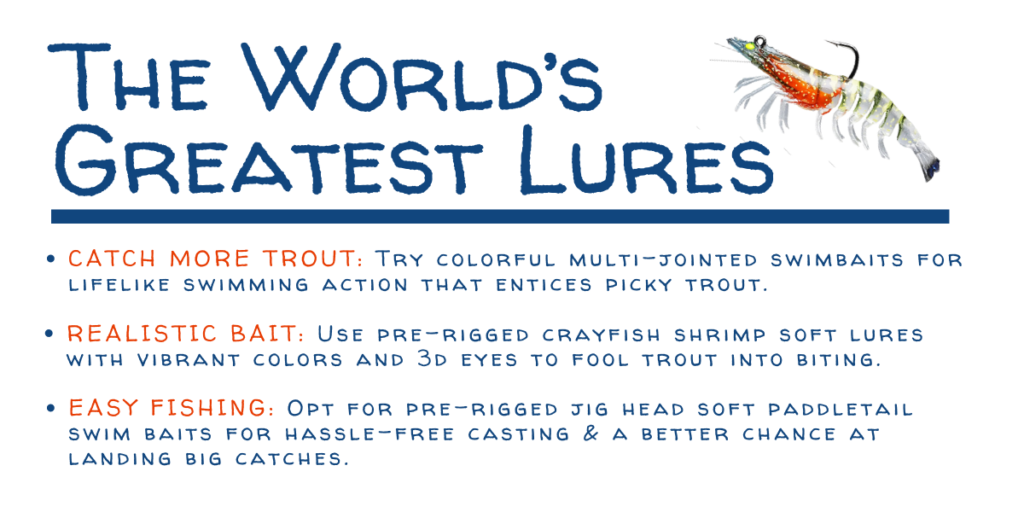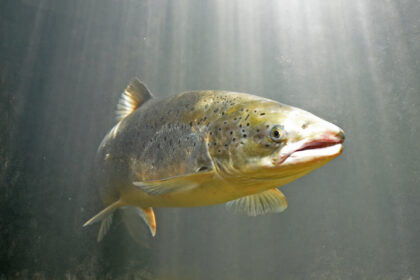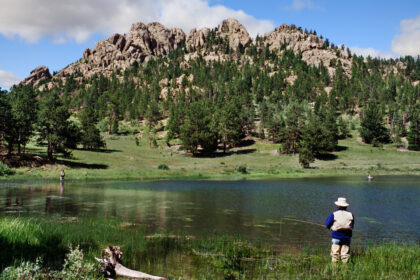2024 Kansas Fishing License
To acquire a Kansas fishing license and trout permit, anglers can visit the Kansas Department of Wildlife, Parks, and Tourism (KDWPT) website or authorized license vendors throughout the state. Residents and non-residents can choose from various fishing license options, including annual, multi-year, and 1-day permits, with discounted rates available for seniors, youth, and disabled individuals. Additionally, anglers targeting trout in Kansas waters must obtain a trout permit, which can be purchased as an add-on to the fishing license.
The revenue generated from fishing licenses and trout permits directly supports conservation efforts and management of Kansas’s fisheries. By acquiring these permits, anglers can enjoy Kansas’s abundant fishing opportunities while contributing to the preservation of its diverse aquatic ecosystems. Be sure to check the 2024 Kansas Fishing Regulations Summary for the most up-to-date fishing regulations, size and creel limits.
2024 | Annual* | Trout Permit |
Resident | $27.50 | $14.50 |
Non-Resident | $77.50 | $14.50 |
*Expires 365 days from the date of purchase.

A Comprehensive Guide to Fishing Licenses in Kansas
Fishing enthusiasts in Kansas are greeted with a wealth of opportunities, from serene lakes to winding rivers, each offering its own unique charm and bounty. Yet, before casting a line into these inviting waters, it’s imperative to understand the licensing requirements set forth by the Kansas Department of Wildlife, Parks, and Tourism (KDWPT). Whether you’re a seasoned resident angler or an out-of-state visitor eager to explore Kansas’s aquatic treasures, acquiring the appropriate fishing license is a fundamental step in enjoying the state’s natural resources legally and responsibly.
Resident License Requirements
Residents aged 16 through 74 are mandated to possess a resident fishing license while engaging in fishing activities in Kansas, unless exempted by specific laws. To qualify as a resident, individuals must have maintained their permanent abode within the state for at least 60 days immediately before purchasing a license, with evidence of domiciliary intent such as voting location, tax payments, or driver’s license issuance. Fortunately, Kansas residents have a range of licensing options at their disposal, including one-day, five-day, annual, and multi-year licenses, catering to various fishing preferences and frequencies. Additionally, residents aged 65-74 can avail themselves of discounted lifetime passes or reduced-price annual licenses, providing long-term access to fishing opportunities at a reasonable cost.
Nonresident License Requirements
Nonresidents aged 16 and above must procure a valid nonresident fishing license to partake in fishing endeavors within Kansas’s waters. Similar to resident licenses, nonresident licenses come in various durations, offering flexibility for visitors exploring the state’s diverse fishing destinations. It’s essential to note that most licenses expire 365 days from the date of purchase or the expiration date of the current license, with exceptions for specific types such as one-day, five-day, and lifetime licenses.

Exemptions and Special Considerations
Certain individuals may be exempt from fishing license requirements under specific circumstances. Landowners, along with their immediate family members, residing on the property, as well as tenants renting land for agricultural purposes and their immediate family members, are exempt from fishing license requirements on waters located on their property. However, exceptions may apply, particularly concerning fishing on private land, necessitating careful review and adherence to regulations.
Special Provisions for Military Personnel and Veterans
Kansas extends special provisions for military personnel and veterans concerning fishing licenses. Active-duty military personnel who entered service as Kansas residents are eligible for resident fishing licenses, as are nonresident military personnel stationed in Kansas and nonresident students attending school in the state. Moreover, active members of the Kansas Army or Air National Guard qualify for complimentary fishing and hunting licenses, along with park permits. Furthermore, Kansas residents separated from the armed services under honorable conditions with a certified service-connected disability of 30 percent or greater may apply for free hunting and fishing licenses through the Kansas Commission On Veterans Affairs.
Application Process and Resources
Acquiring a fishing license in Kansas is streamlined, with applications available online through the KDWPT website. Additionally, detailed information regarding license types, fees, and regulations can be accessed on the License Information page, providing anglers with comprehensive guidance for navigating the licensing requirements.

Conclusion
Fishing in Kansas presents abundant opportunities for residents and visitors to immerse themselves in nature and savor the state’s picturesque waterways. Familiarizing oneself with the licensing requirements outlined by the Kansas Department of Wildlife, Parks, and Tourism is paramount to ensuring compliance with regulations and conservation efforts. By obtaining the appropriate fishing license and adhering to established guidelines, anglers can embark on unforgettable fishing excursions while contributing to the preservation of Kansas’s natural resources for generations to come.





